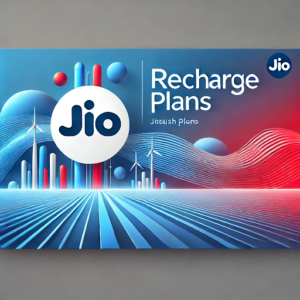
Healthcare app development solutions have quickly become indispensable tools in today’s digital era, both for patients and healthcare providers alike. Offering everything from managing medical records to remote consultations, healthcare apps are making healthcare more accessible and efficient than ever before.
But, for any healthcare app to succeed in today’s ever-evolving environment, its success must address crucial problems within the industry. A healthcare app development agency must prioritise solving pressing issues to bring value to users and stakeholders alike.
One of the primary goals of healthcare apps should be improving patient engagement and adherence. Patients often struggle with effectively managing their health due to a lack of motivation or difficulty tracking progress, making the management of treatment plans difficult and complex. A well-designed healthcare app may provide reminders, educational content, and interactive features that keep users engaged and motivate them to stick with treatment plans.
Data security and privacy is another paramount issue with healthcare apps, as they deal with sensitive medical information that must remain safe from breach. Any breach can have severe legal and ethical repercussions, so healthcare app development solutions must include robust security measures like encryption and access controls to protect patient privacy.
Interoperability remains a persistent challenge in healthcare technology. Healthcare systems use various technologies and standards that make sharing information between apps difficult. A successful healthcare app should integrate seamlessly with various healthcare systems while supporting data exchange to provide a complete picture of patient health.
Table of Contents
Healthcare App Development: Problems Your App Must Address
These healthcare apps must have an impactful contribution within their respective industries.
1. Accessibility
One of the biggest challenges facing healthcare is accessibility. Many people do not have access to quality health services due to geographical or financial restraints; apps can help bridge this gap by offering remote consultations, telemedicine services, and medical information on demand.
Teladoc and Doctor on Demand offer access to healthcare professionals through video calls, making it easier for those in remote or underserved areas to obtain advice or prescriptions without physically visiting a clinic. By addressing accessibility issues, healthcare apps ensure that individuals of all locations and financial backgrounds can gain access to essential healthcare app development services.
2. Appointment Scheduling and Management
Long wait times and the difficulty in booking appointments have long been an obstacle in healthcare. Using mobile healthcare apps, patients can book appointments directly on their smartphones – offering convenience for booking, receiving reminders, and checking in for their appointments from anywhere! This not only reduces administrative workload for healthcare providers but also enhances patient experiences.
Zocdoc and MyChart apps have demonstrated great promise in helping patients easily locate suitable healthcare providers, book appointments, and manage their healthcare schedules seamlessly. By eliminating the complexities associated with appointment management and booking processes, these apps help improve healthcare delivery efficiency overall.
3. Health Monitoring and Chronic Disease Management
Chronic diseases like diabetes, hypertension, and heart disease need constant surveillance and management. Healthcare apps equipped with remote monitoring features, data tracking functions, and medication reminders enable patients to take control of their health while adhering to treatment plans.
Glucose Buddy, for instance, assists those living with diabetes to track their blood sugar levels more easily and manage their condition more effectively. By meeting the needs of individuals living with chronic diseases such as diabetes or asthma, healthcare apps play a key role in improving health outcomes while simultaneously lowering healthcare costs.
4. Medication Adherence
Medication non-adherence is an issue plaguing healthcare today, leading to treatment failure, hospitalizations, and rising healthcare costs. Apps that provide reminders or information about medications, as well as pill identification capabilities, can address this challenge effectively.
Medisafe is an example of an app designed to promote medication adherence. Not only does it remind users to take their pills on time, but it also offers tailored information about each one – such as possible interactions and side effects – providing better health outcomes while decreasing the healthcare system burden.
5. Health Records and Data Security
Healthcare apps offer an effective solution for centralising and digitising patient records to make them easily accessible for both patients and healthcare providers while at the same time protecting sensitive healthcare data from breaches.
Apple Health and Google Health have made great strides forward in this arena by enabling users to store and share their health data securely while also giving healthcare professionals access when needed. Solving the challenge of health record management while protecting data security is an integral part of the widespread adoption of healthcare apps.
6. Telemedicine and Remote Consultations
The COVID-19 pandemic highlighted the value of telemedicine services that offer secure yet user-friendly telemedicine capabilities to modern healthcare, making their adoption even more prominent. Healthcare apps offering such features may help address this need.
Telehealth applications such as Amwell and LiveHealth Online have experienced an exponential rise in popularity, providing patients with easy and safe access to medical care during public health emergencies.
7. Health Education and Information
Health literacy is an integral component of healthcare, yet many individuals lack access to reliable health information. Healthcare apps provide educational platforms for their users by providing up-to-date, accurate health info across various topics.
Apps such as WebMD and Healthline offer users access to health-related articles, videos, and interactive tools in order to make more informed decisions regarding their health. By addressing health education and information dissemination directly, these apps allow individuals to take proactive steps toward improved well-being.
8. Support for Mental Health
Mental health is an increasing global concern, and healthcare apps play a crucial role in providing support and resources for those struggling with their mental well-being. They feature mood-tracking tools, meditation exercises, and virtual therapy sessions with licensed therapists.
Apps such as Headspace and Talkspace have become an increasingly popular option for individuals seeking mental health support. By addressing challenges associated with mental illness, healthcare apps contribute to overall well-being while decreasing the stigma surrounding such issues.
9. Cost Transparency and Insurance Management
Healthcare pricing and insurance can be complex for patients to navigate, making the experience of choosing healthcare much less daunting. Apps can make this easier by providing cost transparency, helping users understand their insurance coverage, and offering tools to compare medical service prices.
HealthSherpa and MyHealthCost apps seek to simplify healthcare costs for users and assist them in finding affordable care options. By providing cost transparency and insurance management capabilities, these applications empower individuals to make financially informed healthcare decisions.
10. Health and Fitness Tracking
Preventive healthcare has grown increasingly popular, and more individuals are seeking ways to monitor their overall health and fitness. Healthcare apps with fitness tracking features such as step counters, calorie counters, and sleep trackers encourage users to adopt healthier lifestyles.
Fitbit and MyFitnessPal have become widely used apps that combine health and fitness tracking, making it simpler for users to set and meet wellness goals. By encouraging a proactive approach towards health, these apps contribute to disease prevention and overall well-being.
Conclusion
Healthcare app development is an innovative field that holds great promise for addressing key challenges within the healthcare industry. As we have explored in this discussion, healthcare app development companies play a central role in solving pressing problems experienced by providers, patients, and all aspects of the ecosystem.
Healthcare app development companies must strive to integrate technology seamlessly into healthcare workflows. This involves creating apps that not only meet the individual needs of healthcare providers but also comply with all healthcare regulations and provide data security and patient monitoring capabilities.
They should act as intermediaries between patients and providers while also fostering efficient communication and remote monitoring capabilities.
Healthcare app development should prioritise improving user experience and engagement. Both patients and healthcare professionals require intuitive apps with user-friendly features capable of providing meaningful insights. Resolving usability issues is vital to increasing the adoption rates of healthcare apps.
Healthcare app development companies must also address the challenge of interoperability. Ensuring different healthcare apps and systems work cohesively is essential to providing comprehensive patient care.





